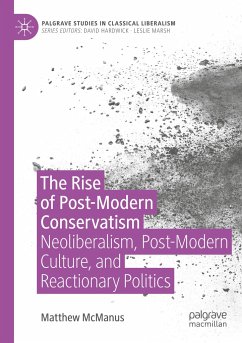
Authoritarian Populism and Liberal Democracy
Versandkostenfrei!
Versandfertig in 6-10 Tagen
106,99 €
inkl. MwSt.

PAYBACK Punkte
53 °P sammeln!
This edited volume offers new insights into the populist wave that is affecting democratic politics in a large number of countries. The authoritarian populist turn that has developed in the US and various European countries in recent years both reflects and exacerbates the polarization of public opinion that increasingly characterizes democratic politics. The book seeks to explain how and why authoritarian populist opinion has developed and been mobilised in democratic countries. It also explores the implications of this growth in authoritarian, anti-immigrant sentiment for the operation of de...
This edited volume offers new insights into the populist wave that is affecting democratic politics in a large number of countries. The authoritarian populist turn that has developed in the US and various European countries in recent years both reflects and exacerbates the polarization of public opinion that increasingly characterizes democratic politics. The book seeks to explain how and why authoritarian populist opinion has developed and been mobilised in democratic countries. It also explores the implications of this growth in authoritarian, anti-immigrant sentiment for the operation of democratic politics in the future. It concludes that liberals may need to abandon their big-hearted internationalist instinct for open and unmanaged national borders and tacit indifference to illegal immigration. They should instead fashion a distinctively liberal position on immigration based on the socially progressive traditions of planning, public services, community cohesion and worker protection against exploitation. To do otherwise would be to provide the forces of illiberal authoritarianism with an opportunity to advance unparalleled since the 1930s and to destroy the extraordinary post-war achievements of the liberal democratic order.














